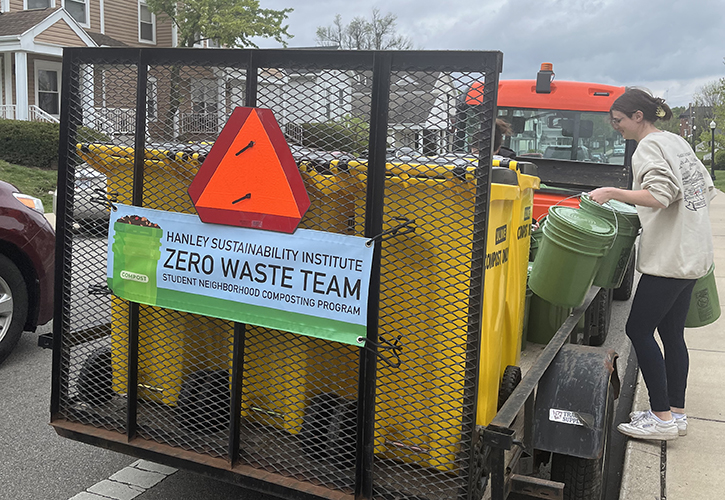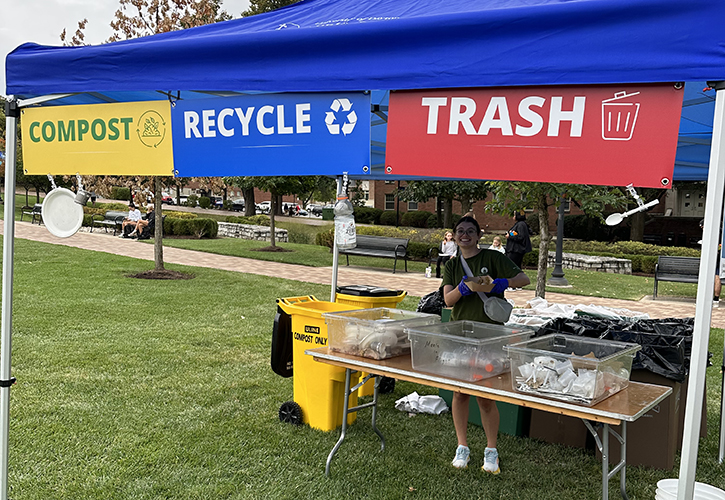Hanley Sustainability Institute

Campus sustainability: Let’s talk about trash
By Megan Stoneburner
One of the 10 categories that the University of Dayton has identified as critical to its long-term sustainability goals is waste. The goals that have to do with waste are reducing tonnage, increasing diversion rates and improving waste-data tracking.
To achieve these goals, UD has set multiple sub-goals they are aiming to achieve within a certain time period. To understand how these goals are to be achieved, we must first understand what they are.
The goal of reducing waste tonnage and increasing diversion rates means the University of Dayton wants to decrease tonnage by ensuring waste infrastructure supports waste reduction. This has to do with the vendor contract and janitorial contracts here at UD, where the placement of the different bins and their designs on campus are and the changes in behavior through the education of waste reduction on campus.
The goal of improving waste-data tracking means UD wants to require tracking and reporting of waste tonnage for all campus construction and demolition projects. UD wants to be able to support the current high rate of electronic recycling and reuse by implementing an improved tracking process for all outbound technology equipment. There is also the initiative to update our waste hauling contract to include improved waste tonnage reporting accuracy and frequency.
The Hanley Sustainability Institute (HSI) is supporting and helping the University of Dayton make these goals a reality.

The work of the HSI Zero Waste team and graduate students has helped start these initiatives. As students, we aim to decrease the campus’s post-consumer landfill food waste by piloting composting initiatives for student residences and offices.
The Zero Waste team runs a composting program open to the north and south student neighborhoods, as well as offices located on UD’s main campus. Compost is collected from these locations weekly and sent to Old River Park where it is composted in UD’s in-vessel. We also provide the service of holding zero-waste events, which divert waste from the landfill. This gives attendees a place where they can sort through their waste to give them an educational experience of what items can be composted and recycled.
As part of her graduate research, Cassie Austin 23’ performed a waste characterization study on UD’s campus to discover what waste was being generated and to discover what the best practice is for diverting waste. Cassie performed a waste audit for seven different buildings on campus. She sorted this waste into four different categories which included landfill/non-recoverable, compostable, recyclable and recoverable. By doing this, she was able to discover what kind of waste is being produced where and what are the best locations for and best designs for bins. This will help achieve these goals by discovering methods to limit waste ending up in landfills from UD. These waste audits will also help improve how we track waste.
There is a lot of work to be done to accomplish our goals around waste, but through student passion and support we have already made strides in supporting a more sustainable future for UD.
